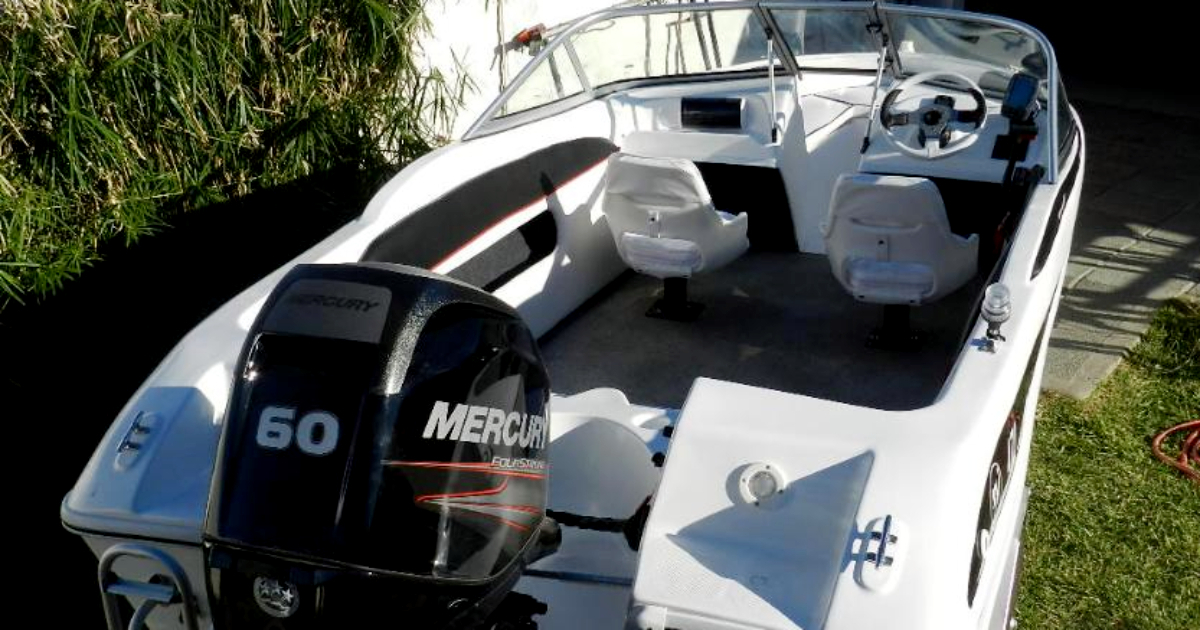The Cuban government has authorized the importation of more powerful marine engines for natural persons, whether Cuban or foreign, as long as they are permanent residents in the national territory. Eduardo Rodríguez Dávila, Minister of Transport of Cuba (MITRANS), announced through his social media that this measure was adopted "in response to requests from residents of coastal Cuban communities traditionally engaged in fishing."
"It was decided to increase the power of the engines that can be imported by natural persons to 60 horsepower (hp), with the aim of ensuring the safety of navigation, human life at sea, and improving the vessels used in non-state commercial fishing activities," stated the MITRANS minister.
The Resolution 130/2024, which sets the requirements and procedures for the importation process of these engines, was published this Tuesday in the extraordinary edition number 41 of the Official Gazette of Cuba.
The regulation states that "Cuban and foreign natural persons who are permanent residents in the national territory and interested in importing marine engines, as provided for in the First section, shall process the procedure at the Port Authority where the vessel is registered."
"The authority empowered to issue the permit, the deadlines, and conditions for such importation is the head of the National Department of Port Authority," the resolution notes.
In this regard, "Cuban and foreign natural persons who are permanent residents in the national territory are required to present the import permit issued by the Port Authority at the time of customs clearance; as well as to comply with the value limit established for non-commercial importation according to current legislation."
With the entry into force of Resolution 130/2024, the previous regulation (Resolution 100/2022), which authorized the importation of marine engines with a power not exceeding 10 horsepower (hp), is repealed. This earlier regulation was adopted at a time when there were daily reports of Cuban migrants arriving on the shores of the United States in small motorboats.
Rodríguez Dávila also announced new measures related to the commercialization of vehicles in the country, including a reduction in car prices for natural persons.
New Measures for Vehicle Sales
To "facilitate greater access to new means of transport for society as a whole and to raise funds aimed at sustaining and developing public passenger transport and transport infrastructure," the measure includes a price adjustment for vehicles sold to natural persons.
According to the minister, "the importation and commercialization of vehicles in convertible currencies will continue, adjusting the sales prices so that they do not vary whether the buyer is a legal entity or a natural person."
For natural persons, who previously paid higher prices for vehicles compared to legal entities (Mipymes, cooperatives, foreign firms, and state enterprises, among others), the prices will be lower than current ones.
Customs duties, services, and taxes will be paid in convertible currencies, as previously established in regulations that allow the Customs to collect between 20,000 and 56,000 dollars for each car imported from the United States.
"The funds collected from these taxes and duties will form part of a fund managed by the Ministry of Transport, aimed at the recovery and development of public transport and its infrastructure," the minister indicated.
Importation of Higher-Powered Marine Engines in Cuba: FAQs
Here are some common questions and answers regarding the recent authorization of more powerful marine engine imports in Cuba.
What is the maximum horsepower allowed for imported marine engines?
The maximum horsepower allowed for imported marine engines is now 60 hp.
Who can import these higher-powered marine engines?
Both Cuban and foreign natural persons who are permanent residents in the national territory can import these engines.
What are the requirements for importing these engines?
Importers must process their applications at the Port Authority where their vessel is registered and present the import permit at the time of customs clearance.
